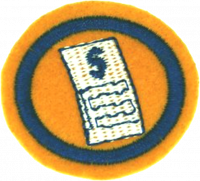Difference between revisions of "AY Honors/Household Budgeting (SAD)/Answer Key/es"
(Created page with "{{clear}}") |
(Created page with "</noinclude>") |
||
| Line 242: | Line 242: | ||
<noinclude></noinclude> | <noinclude></noinclude> | ||
| − | + | {{clear}} | |
| − | |||
| − | |||
| − | + | {{clear}} | |
| − | |||
| − | |||
| − | |||
| − | |||
| − | |||
| − | |||
| − | |||
| − | |||
| − | + | <noinclude></noinclude> | |
| − | <noinclude | ||
| − | |||
{{CloseReq}} <!-- 14b --> | {{CloseReq}} <!-- 14b --> | ||
{{ansreq|page={{#titleparts:{{PAGENAME}}|2|1}}|num=14c}} <!--T:21--> | {{ansreq|page={{#titleparts:{{PAGENAME}}|2|1}}|num=14c}} <!--T:21--> | ||
| − | <noinclude> | + | <noinclude></noinclude> |
| − | </noinclude | ||
| − | |||
| − | |||
| − | + | <noinclude></noinclude> | |
| − | <noinclude | ||
| − | |||
{{CloseReq}} <!-- 14c --> | {{CloseReq}} <!-- 14c --> | ||
{{ansreq|page={{#titleparts:{{PAGENAME}}|2|1}}|num=14d}} | {{ansreq|page={{#titleparts:{{PAGENAME}}|2|1}}|num=14d}} | ||
| − | <noinclude> | + | <noinclude></noinclude> |
| − | </noinclude | ||
| − | |||
| − | + | <noinclude></noinclude> | |
| − | <noinclude | ||
| − | |||
{{CloseReq}} <!-- 14d --> | {{CloseReq}} <!-- 14d --> | ||
{{ansreq|page={{#titleparts:{{PAGENAME}}|2|1}}|num=14e}} | {{ansreq|page={{#titleparts:{{PAGENAME}}|2|1}}|num=14e}} | ||
| − | <noinclude> | + | <noinclude></noinclude> |
| − | </noinclude | ||
| − | |||
<noinclude></noinclude> | <noinclude></noinclude> | ||
Revision as of 15:26, 21 March 2023
Nivel de destreza
2
Año
2012
Version
13.02.2026
Autoridad de aprobación
División Sudamericana
1
2
3
4
5
6
7
8
9
10
10a
10b
10c
11
Another way to get out of debt is to sell assets off to raise cash. Selling investments, real estate, furniture etc may be the only alternative if you suffer some serious unfortunate circumstances, but eventually you will run out of things to sell so running a budget surplus is a much better plan.
12
13
Passbook saving plans usually give very little or no interest or rate of return. If you want to make your savings grow for you, you should look into options like:
Bonds: A loan to a government or company with a fixed repayment schedule and interest. Most bonds can not be redeemed on demand, but they can be sold to someone else. If interest rates go up, the value of a bond can decrease, but if interest rates go down, the value of the bond can rise. Tradable Bonds require a fairly high minimum investment and require specified investment multiples. You can't put a random amount like $353 into a bond.
Term Deposits: A usually fixed term deposit with a bank that pays a better interest rate then a savings account. Term deposits are usually fixed so your money is locked in. If they can be redeemed early, you will likely have to give up all the interest. Term deposits usually have a fairly low minimum amount, but more then many Pathfinders can afford.
Money Market Fund: These investment funds invest in low risk income producing investments like T-bills and short term bonds. They usually allow random amounts of money to be invested and you can put in and take out money whenever you need to. There are management fees, but nominal. Very convenient.
Mutual Funds: Different mutual funds are governed by different investment strategies, from the super safe and boring (like money markets funds) to the "hang on for a roller coaster ride" leveraged emerging market funds. Carefully consider your investment objectives before choosing a fund to invest in. Mutual funds incur commissions and management fees, so be sure you understand these before investing. An advantage of mutual funds is that most will accept a small initial investment with regular small automatic additions over time.
14
14a
Writing a check involves correctly filling in the :
- Payee - who the check passes money to
- Date - this could be a date in the future (a post dated check)
- Figure - the
Purpose of the check:
10. Writing the purpose here makes sure the receiver knows what it's for, and helps you remember later on what this check was paying for. Also called the reference line. It is optional, but might include an invoice or account number or a short note like "rent for 123 Walnut St for Feb 2016."
Signing the check:
14b
14c
14d
14e
15
16
17



